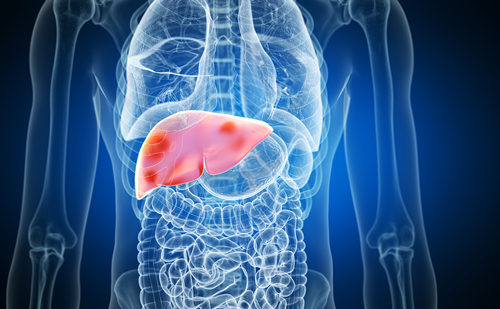



EASD 2024: The latest in vascular endocrinology - insights from the late-breaking session 'Ailing Heart, Broken Vessels'
touchENDOCRINOLOGY was delighted to speak with Editorial Board member Dr Deep Dutta, a senior endocrinologist at the CEDAR Superspecialty Clinics, New Delhi, India. Throughout this interview, he summarizes the key messages from his late-breaking abstract session ‘Ailing Heart, Broken Vessels’, presented at the 60th European Association for the Study of Diabetes (EASD) annual meeting in Madrid, Spain.
Analysis of new data presented at the European Association for the Study of Diabetes (EASD) congress 2024, delivered by an expert faculty in the field of endocrinology.
Dry Eye in Diabetes: The Indian Diabetic and Endocrine Eye Diseases (INDEED) Review
The aim of this article was to obtain insights into the correlation between dry eye and diabetes, with a focus on data published in the Indian population.
Teprotumumab’s Impact on Proptosis in Long-duration Thyroid Eye Disease: A Systematic Review and Meta-analysis
While existing clinical studies are open to bias and intrinsically limited, the meta-analysis dilutes the risk of bias by weighting more precise evidence, providing the highest quality evidence to date. Further research is essential to understand teprotumumab’s long-term efficacy and comparative advantages over surgical options.




touchENDOCRINOLOGY
Education, Conference Coverage and Articles

Want to be featured in touchReviews in Endocrinology?
Share your knowledge, influence clinical practices and enhance patient care in Endocrinology today!
- Peer-reviewed, free-to-access
- Indexed on PubMed
- Accepting reviews, research and editorials
- No article processing fees
- Digital features and plain language summaries
- Multichannel content distribution for maximum visibility
Editorial Board
Introducing the Editorial Board of touchREVIEWS in Endocrinology, who support our mission to advance medical knowledge and practice by ensuring the integrity, relevance, and impact of the content we publish. Together, we strive to foster a vibrant academic community and contribute to the continuous improvement of healthcare worldwide.

John Doupis
Editor-in-Chief
Diabetes

Biography
Dr John Doupis is a former clinical research fellow of the Joslin Diabetes Center, Harvard Medical School, in Boston, MA, USA and scientific partner in Beth Israel Deaconess Foot Center Harvard Medical School, Boston, MA. Currently, he is directing the Diabetes Division and Clinical Research Center of Iatriko P. Falirou Medical Center in Athens, Greece. He has served as a principal investigator in many multicentre phase I, II, III and IV clinical trials, most of which have been published in international journals or presented at congresses. He is a registered reviewer and a member of the editorial board for many major diabetes medical journals. He has given numerous lectures in national and international congresses, presenting over 200 abstracts. His special areas of interest are diabetes and its complications, especially obesity, diabetic neuropathy, diabetic foot, as well as the glucose sensing technologies and insulin pumps. In these fields, he has published more than 50 papers in international medical journals, having more than 1,500 citations.

Chantal Mathieu
Editorial Board member
Diabetes

Biography
Prof. Chantal Mathieu is a physician-scientist who has contributed to the field of diabetes and endocrinology through basic and clinical research. Her basic research work focuses on pathogenesis and prevention of type 1 diabetes. Prof. Mathieu’s clinical work involving new products and treatment paradigms in diabetes, such as new insulins, adjunct therapies and diagnosis of gestational diabetes have made her a speaker in international fora. Prof. Mathieu coordinates the European clinical trial network for interventions in type 1 diabetes ‘INNODIA’ and the European project ‘EDENT1FI’ on screening for type 1 diabetes. Prof. Mathieu is president of EASD and vice-president of the European Diabetes Forum.

Diana Isaacs
Editorial Board member
Diabetes

Biography
Diana Isaacs, PharmD, BCPS, BC-ADM, BCACP, CDCES is the Continuous Glucose Monitoring (CGM) Program Coordinator and Endocrinology Clinical Pharmacy Specialist at the Cleveland Clinic Diabetes Center. She provides medication management and runs a robust CGM shared medical appointment program. Dr Isaacs is a Certified Diabetes Care and Education Specialist and holds board certifications in pharmacotherapy, ambulatory care and advanced diabetes management. She has numerous diabetes publications and research projects with a focus on medications, CGM and diabetes technology.

Linda Siminerio
Editorial Board member
Diabetes

Biography
Linda Siminerio, RN, PhD is Emeritus Professor of Medicine and Professor of Nursing, Health and Community Systems at the University of Pittsburgh. She has led a career in diabetes research and education. An internationally recognized expert on self-management education and health care delivery models in both pediatric and adult populations, she serves as the Principal Investigator on many studies related to diabetes treatment.
Dr Siminerio has authored numerous publications and served as editor on several diabetes journals. She was President of Health Care and Education, American Diabetes Association and Senior Vice President, International Diabetes Federation (IDF) and Past-Chair of the National Diabetes Education Program (NDEP). In these positions, she has organized and led national and international efforts on the development of programs, standards and care models directed toward health professionals, patients and the community.
Dr Siminerio served as organizing chair for the International Diabetes Federation (IDF) World Diabetes Congress and IDF translation research program, Building Research in Diabetes Global Environments and Systems (BRIDGES).

 touchENDOCRINOLOGY
touchENDOCRINOLOGY
Register Now!
Explore the latest in medical education and stay current in your field. Create a free account to track your learning.
- Save your progress for video
- Keep track of your CME credits
- Add personalised learning notes
- Receive updates from course leaders and faculty
- Be the first to hear about new and exciting interactive learning opportunities
This Functionality is for
Members Only
Explore the latest in medical education and stay current in your field. Create a free account to track your learning.




























